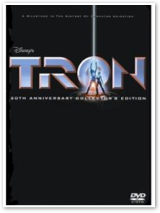





According to proponents of this myth, Apple and Amazon are embroiled in a dramatic conflict over movie downloads, with contention about who will be first, who will offer more, and who will ultimately prevail. Here's a critical look at what's being said, and the facts they're overlooking. Of course, they're wrong, here's why.
Cringely Speculates?
Mark Stephens, writing as Robert X Cringely, managed to string together most of the rumors in his I, Cringely blog, so let's start there.
 In his usual style, he ignores details about the underlying technologies to instead write about companies and industry players as soap opera characters riddled with intrigue, and taxed by their overwhelming egos. It's entertaining, but not very informative.
In his usual style, he ignores details about the underlying technologies to instead write about companies and industry players as soap opera characters riddled with intrigue, and taxed by their overwhelming egos. It's entertaining, but not very informative.Under the headline Apple controls Amazon? Stephens relates a theory that has Apple "struggling to put together the right list of participating movie companies," and worried that Amazon will beat them to the punch in delivering a movie download store.
He also spins a tale about Apple and Amazon both canceling their planned announcements for movie download stores back in July. Purportedly, Steve Jobs used his connections at Disney, as a board member and the largest individual shareholder, to press Amazon to delay their TV and movie download store until Apple could put together more content. Wow.
Even ignoring the fact that the supposed "canceled movie store announcements" never actually occurred, why would Jobs be concerned about anyone entering the market ahead of Apple?
Was the success of Apple's iPod and iTunes based on being the first music player with software? Is Apple's music store commanding a 75% share of music downloads because it was the first entry among online music stores? No, in each case, Apple entered markets that already had established players.
Steve Jobs doesn't care if Amazon jumps into the pool first. Such a move would only help Apple understand how cold and deep the water is. Apple has recently been closely watching the failures of others to avoid making the same mistakes.
How Many Studios?
Further, why would Amazon hold up their TV download business for an entire season at Apple's request, simply to gain Disney in their catalog at launch? Jobs might be the largest individual shareholder in Disney, but he certainly does not have the capacity to hold up profitability in order to perform soap opera theatrics.
Consider that just one year ago, when Apple started selling TV downloads, it initially had four shows to offer. That wasn't a show-stopper for Apple's TV download business, which has since filled out to include more than forty different networks of programming.
Apple would have no problem diving into movie downloads even if it only had a four Disney movies to sell, and one of them was Tron.
Of course, studios would rather break their own legs than hold up download sales of movie titles that aren't big enough to sell as retail DVDs, and they are equally desperate to generate additional sales of their blockbuster titles. That's right, sales, not rentals.
Amazon Does Downloads?
An observation that is conspicuously missing among analysts commenting on Amazon is the reality that Amazon has no history as a download provider. They had no TV download business and hadn't even run an online music store yet. Will they suddenly have more expertise in movie downloads than Apple?
If starting a music and media download operation is a simple task, why do Sony Connect, Napster, MTV Urge, and all the other WMA stores simply fail to matter? And why hasn't anyone else jumped at the chance to significantly compete against Apple's iTMS? Hint: it’s a lot of work, and it’s not really profitable.
There are a number of independent music labels that sell online songs; many even in the unencumbered MP3 format. However, none of these stores operate with volume and catalogs approaching Apple's, and really serve very different niche markets. Matching Apple's years of experience in managing download sales is no simple task.
Amazon is good at shipping boxes. If anything, movie downloads will only erode their established CD and DVD sales, so an online movie store for Amazon is a desperate stab at remaining relevant, while for Apple, it's a natural extension of its existing business and a way to sell additional, related hardware: iPods, AirTunes wireless devices, other accessories, and of course, Macs.
Downloads a Threat?
Retailers such as Amazon and WalMart, who make money selling hardcopy CDs and DVDs, are worried that the content business will abruptly move to downloads, leaving them stranded upon an outdated business model. Both are desperate to get into downloads, despite having little clue on how to do it.
Of course, CDs and DVDs serve very different markets; hard copy media is preferred by collectors, and certainly is a better option for anyone wanting flexibility and the highest quality available. In some cases, hard copies are also cheaper than web downloads.

Web downloads are constrained by realities of physics and the market; they do offer some advantages however, including on-demand availability and simple portability.
However, there are no huge profits involved in licensing and distributing content, a cruel fact faced by WMA’s music store partners as they whither and die.
Companies rushing to deliver videos via the web will simply meet the same demise as the music download sites, but faster, because they'll have to burn through greater expense in trying to stay afloat. Online sales make sense for Apple because they help sell Apple hardware.
Selling online content does little for retailers like Amazon, apart from possibly generating residual sales of iPods or related retail gear, or perhaps working to entrench them as a one-stop shop for online purchases. Remember that Amazon's last great idea was selling groceries in the mail. Amazon is extending its reach, somewhat desperately, rather than building a sustainable platform.
Amazon & WalMart Have A Platform?
Of course, retailers like Amazon and WalMart have no platform to build upon. Both are just reselling Microsoft's WMA, just like every other iTMS rival / failure to hit the media download market.
Microsoft planned WMA to take over the world, and then comfortably generate licensing taxes for the company every time anything was sold, from a song, to a music player, to apparently TVs, and perhaps even water and oxygen at some point.
After WMA was blown out of the sky by Apple's QuickTime, Microsoft simply grew more desperate in pushing the technology they had invested so much money in developing. The only thing WMA had to offer that QuickTime didn't was a method for selling self-destructing media. Microsoft used that as their subscription strategy in an effort to regain some market share.

However, the only real application for onerous DRM is in treating customers like idiots, and selling them reanimated DIVX-zombie content that dies after a viewing, or after a given timeframe.
Two and half years ago, I wrote why all the hoopla about expiring subscription media was a farce, in D.R.M., or How I Learned to Stop Worrying and Love the Bomb.
Over a year ago, I presented further reasons why the WMA subscription media model wasn’t going to fly in Analysts fail to predict Apple's success with iPod, QuickTime, iTunes.
ThinkSecret: Oops Did They Do It Again?
In July, Ryan Katz of ThinkSecret announced they had “learned exclusively that CEO Steve Jobs will use his keynote address to announce the debut of movie rentals through the iTunes Music Store”.
I caught some flack for suggesting that the ThinkSecret prediction would be wrong, when I debunked The Online Music and Movie Rental Myth as a fantasy that only exists in the minds of greedy media producers, who expect to be paid for every private viewing of the same content.
In New Media and Free Market Choice I presented specific examples demonstrating why the free market would select business models that make sense, not reward companies pushing pseudo-subscription, exploding media, simple because they were available.
By introducing the only alternative to WMA, Apple unlocked that free market. Retailers like Amazon and WalMart are trying to reanimate the monster and turn back the clock to 2001, when it appeared that Microsoft would own media just as they owned PCs.
No Great Conspiracy?
The real constraints holding back Apple's movie store have little to do with studios unwilling to sell their content, or new competition hawking the same old WMA, and everything to do with technology hurdles.
Video data is vastly larger than audio. That's something that seems to be lost upon analysts trying to understand and explain what's happening. In the next article, I’ll look at the technical problems Apple is solving in order to release new products early next week, and compare how Apple is using the iTMS to build the iPod as a platform.
This Series

| | Comment Preview
 Read more about:
Read more about:

 Send |
Send |

 Subscribe |
Subscribe |
 Del.icio.us |
Del.icio.us |
 Digg |
Digg |
 Furl |
Furl |
 Reddit |
Reddit |
 Technorati
Technorati
Click one of the links above to display related articles on this page.
The Apple iTMS vs Amazon Unbox Rivalry Myth
Sunday, September 10, 2006






Ad











